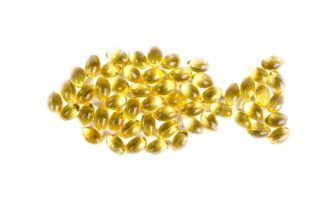In today’s whirlwind of supplements and health trends, Ashwagandha stands out—not as a newfound secret, but as an ancient remedy reasserting its relevance. This powerful herb, rooted in over 3,000 years of Ayurvedic tradition, is making waves among health enthusiasts, wellness seekers, and the fitness community. But what exactly is Ashwagandha, and who stands to benefit from its inclusion in their wellness regimen? This blog dives deep into the world of Ashwagandha, illustrating its history, health benefits, and key considerations for use.
Introduction to Ashwagandha: Origin, History, and Traditional Uses
Ashwagandha (Withania somnifera), also known as Indian ginseng or winter cherry, is a small, shrubby plant native to India and North Africa. Its roots and orange-red fruit have been used for millennia to concoct remedies for a vast array of ailments. Historically revered in Ayurvedic medicine as a Rasayana (tonic), it was prescribed to help people strengthen their immune system after an illness and to enhance longevity.

The Science Behind Ashwagandha: Key Research Findings and Health Benefits
Far from folklore, the benefits of Ashwagandha are now being corroborated by science. Studies suggest that it can reduce cortisol levels, combat stress, improve sleep quality, and boost brain function.
- Stress and Anxiety: Ashwagandha’s most praised benefit is its ability to lower stress. This is credited to its classification as an adaptogen, meaning it can help the body manage stress.
- Cognitive Function: Research indicates that Ashwagandha supports memory, cognitive speed, and overall brain health.
- Physical Performance: Fitness enthusiasts might find Ashwagandha particularly appealing. Some studies show it can enhance strength, muscle size, and recovery.
Who Could Benefit from Ashwagandha?
Given its broad range of benefits, a wide array of individuals can reap rewards from this ancient herb:
- The Overwhelmed: Anyone battling the stresses and strains of modern life may find a natural ally in Ashwagandha.
- Fitness Aficionados: Athletes and regular gym-goers could experience improved strength and better recovery times.
- Sleep Seekers: Those chasing a good night’s sleep might find solace in Ashwagandha’s ability to improve sleep quality.
- The Intellectually Engaged: Individuals needing a cognitive boost—whether for studies, work, or personal projects—may benefit from Ashwagandha’s brain function support.
Different Forms of Ashwagandha
Ashwagandha comes in various forms—each with its unique benefits:
- Pills: Convenient for those on the go.
- Powders: Offers flexibility in how you consume it—mixable in shakes, foods, etc.
- Tinctures: Liquid form can be more quickly absorbed by the body.
General Dosage Recommendations Based on Research
- For Stress and Anxiety Reduction:
- Studies have used dosages ranging from 300 mg to 500 mg of ashwagandha root extract taken twice daily. This dosage range has been shown to effectively reduce stress and anxiety levels in adults.
- For Enhancing Sleep:
- A dosage of around 300 mg of ashwagandha root extract, taken twice daily, including once just before bedtime, has been observed to improve sleep quality and help manage insomnia.
- For Improved Cognitive Function:
- Research suggests that 300 mg of ashwagandha root extract twice daily can support cognitive function, memory, and reaction times.
- For Athletic Performance:
- Doses ranging from 500 mg to 1250 mg of ashwagandha root extract per day have been studied for their effects on muscle strength and recovery in athletes, showing positive outcomes.
- General Wellbeing:
- For overall health and vitality, a daily dose of 300-500 mg of ashwagandha extract is commonly recommended, though some benefits have been seen with doses up to 6000 mg per day of the powder form, divided into several doses.
Considerations and Safety
- Form Matters: The concentration of withanolides, the active compounds in ashwagandha, can differ significantly between products, affecting the dosage. Extracts are more concentrated than powders, requiring smaller doses to achieve similar effects.
- Individual Differences: Age, health status, and the presence of specific health conditions can influence the appropriate dosage. What works for one person might not work for another.
- Start Small: When beginning ashwagandha, it’s often recommended to start with a lower dose to assess tolerance before gradually increasing to the desired therapeutic dose.
- Consult a Professional: Before adding ashwagandha to your regimen, especially if you are pregnant, breastfeeding, have a medical condition, or are taking medication, consult a healthcare provider.
Conclusion
Ashwagandha’s resurgence in the health and wellness domain is no surprise. With its rich Ayurvedic legacy and the backing of modern science, it offers a holistic approach to combatting stress, improving health, and enhancing quality of life. Whether you’re navigating the challenges of modern living, seeking to optimize your physical performance, or in pursuit of mental clarity, Ashwagandha may just be the supplement to explore. We encourage you to consider its potential and, as always, advocate for a conversation with your healthcare provider to ensure it’s the right fit for your health profile and wellness goals.













